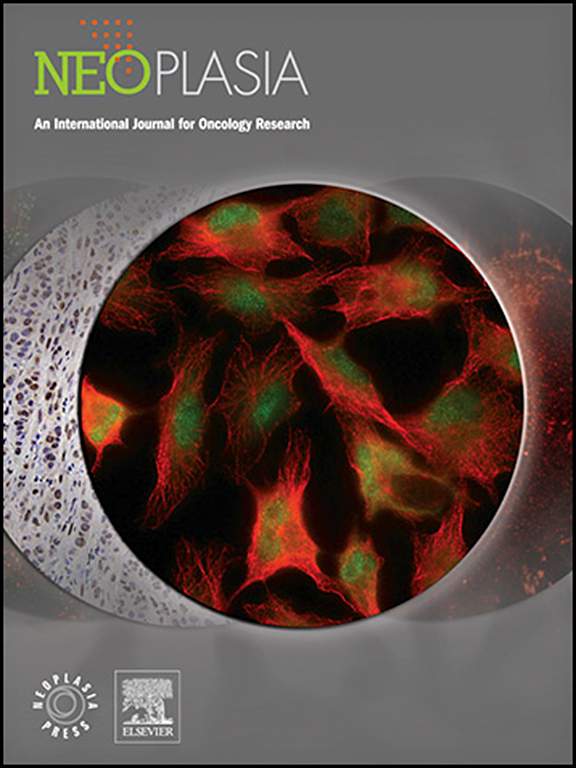The immune response against cancer is modulated by stromal cell fibronectin
IF 7.7
2区 医学
Q1 Biochemistry, Genetics and Molecular Biology
引用次数: 0
Abstract
Cancer-associated fibroblasts remain poorly understood, with some of them originating from the bone marrow. We therefore took advantage of the diversity of bone marrow stromal cells to shed light on how fibroblasts modulate cancer growth.
In two murine cancer models, adding these fibroblasts to tumor cells resulted in smaller lesions. Suppression was enhanced by pretreatment with fibronectin, while genetic deletion of fibronectin in a small subpopulation of stromal cells expressing osterix/sp7 restored growth. The suppressive stromal population showed two more characteristics: the absence of CD31/pecam1 and CD105/endoglin. However, only a decrease in CD105/ENDOGLIN in melanoma patients translated in improved survival. Mechanistically, fibronectin or fibronectin fragments activate integrin α5β1 and TLR4 and increase chemokine production by stromal cells ultimately leading to enhanced recruitment and activity of Ly6G+ myeloid cells without T-cell involvement.
This work thus characterizes a beneficial interaction between stromal cells and neutrophils enhancing the immune response against early cancer.
对癌症的免疫反应是由基质细胞纤维连接蛋白调节的
与癌症相关的成纤维细胞仍然知之甚少,其中一些来自骨髓。因此,我们利用骨髓基质细胞的多样性来阐明成纤维细胞如何调节癌症的生长。在两种小鼠癌症模型中,将这些成纤维细胞添加到肿瘤细胞中导致较小的病变。纤维连接蛋白预处理增强了抑制作用,而在一小部分表达osterix/sp7的基质细胞亚群中,纤维连接蛋白的基因缺失恢复了生长。抑制性间质群体表现出另外两个特征:缺乏CD31/pecam1和CD105/endoglin。然而,在黑色素瘤患者中,只有CD105/ENDOGLIN的降低转化为生存率的提高。从机制上讲,纤维连接蛋白或纤维连接蛋白片段激活整合素α5β1和TLR4,并增加基质细胞的趋化因子产生,最终导致Ly6G+骨髓细胞的募集和活性增强,而不涉及t细胞。因此,这项工作表征了基质细胞和中性粒细胞之间有益的相互作用,增强了对早期癌症的免疫反应。
本文章由计算机程序翻译,如有差异,请以英文原文为准。
求助全文
约1分钟内获得全文
求助全文
来源期刊

Neoplasia
医学-肿瘤学
CiteScore
9.20
自引率
2.10%
发文量
82
审稿时长
26 days
期刊介绍:
Neoplasia publishes the results of novel investigations in all areas of oncology research. The title Neoplasia was chosen to convey the journal’s breadth, which encompasses the traditional disciplines of cancer research as well as emerging fields and interdisciplinary investigations. Neoplasia is interested in studies describing new molecular and genetic findings relating to the neoplastic phenotype and in laboratory and clinical studies demonstrating creative applications of advances in the basic sciences to risk assessment, prognostic indications, detection, diagnosis, and treatment. In addition to regular Research Reports, Neoplasia also publishes Reviews and Meeting Reports. Neoplasia is committed to ensuring a thorough, fair, and rapid review and publication schedule to further its mission of serving both the scientific and clinical communities by disseminating important data and ideas in cancer research.
 求助内容:
求助内容: 应助结果提醒方式:
应助结果提醒方式:


